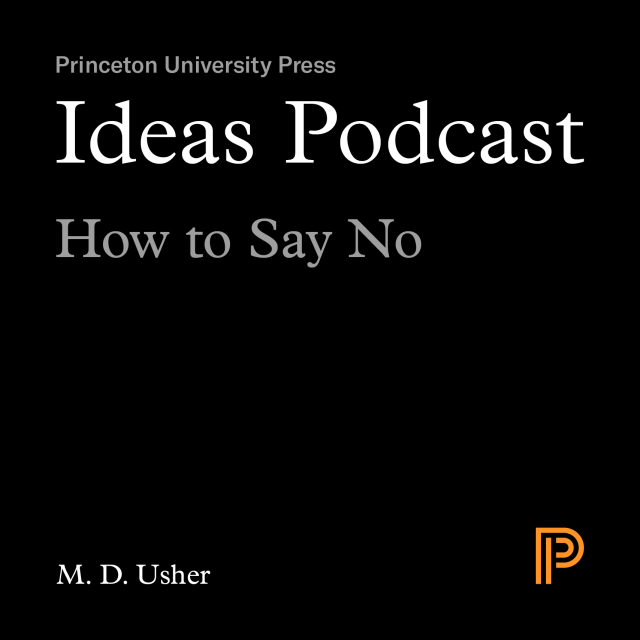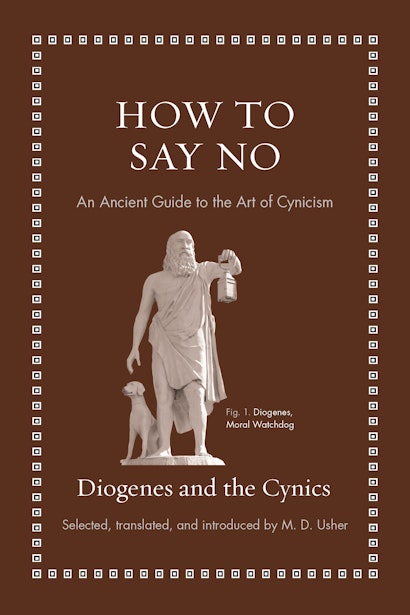The Cynics were ancient Greek philosophers who stood athwart the flood of society’s material excess, unexamined conventions, and even norms of politeness and thundered “No!” Diogenes, the most famous Cynic, wasn’t shy about literally extending his middle finger to the world, expressing mock surprise that “most people go crazy over a finger.” When asked why he was called Diogenes the Dog, he replied “because I fawn on those who give, I bark at those who don’t, and I bite scoundrels.” How to Say No is a delightful collection of brief ancient writings about Cynicism that captures all the outrageousness, wit, and wisdom of its remarkable cast of characters—from Diogenes in the fourth century BCE to the column-stander Symeon Stylites in late antiquity.
About the Author
M. D. Usher is the Lyman-Roberts Professor of Classical Languages and Literature and a member of the Department of Geography and Geosciences at the University of Vermont. With his wife, he also built, owns, and operates Works & Days Farm in Shoreham, Vermont. His previous books include How to Be a Farmer: An Ancient Guide to Life on the Land (Princeton), Plato’s Pigs and Other Ruminations, and a number of books for children, including Diogenes.

